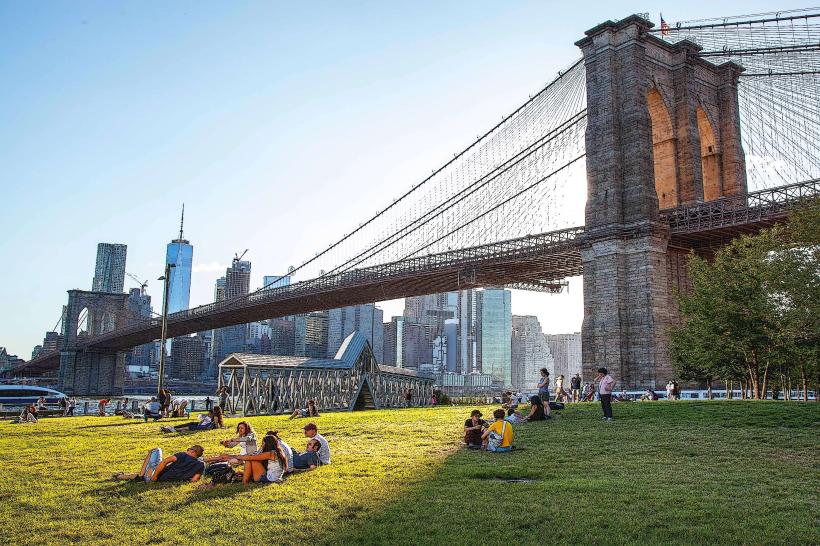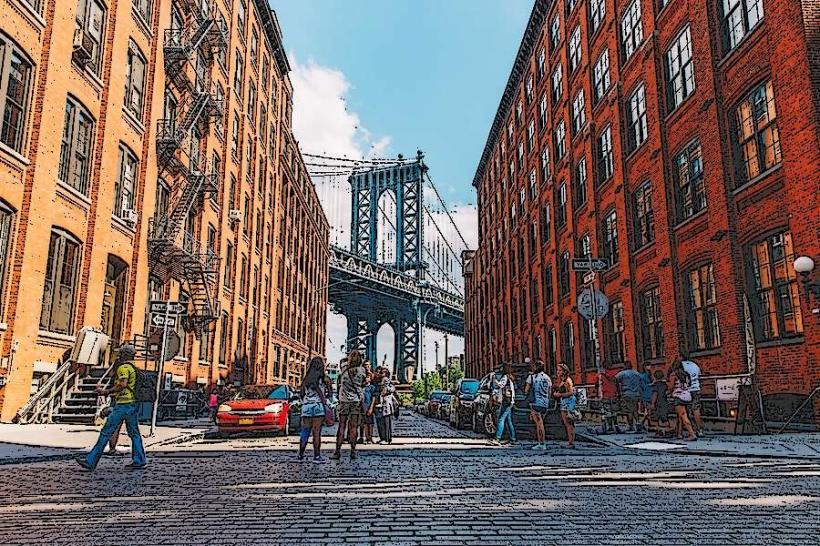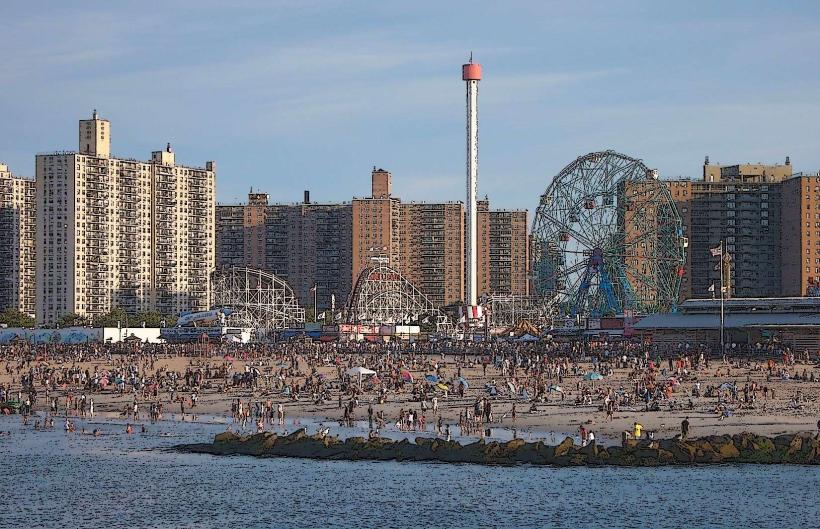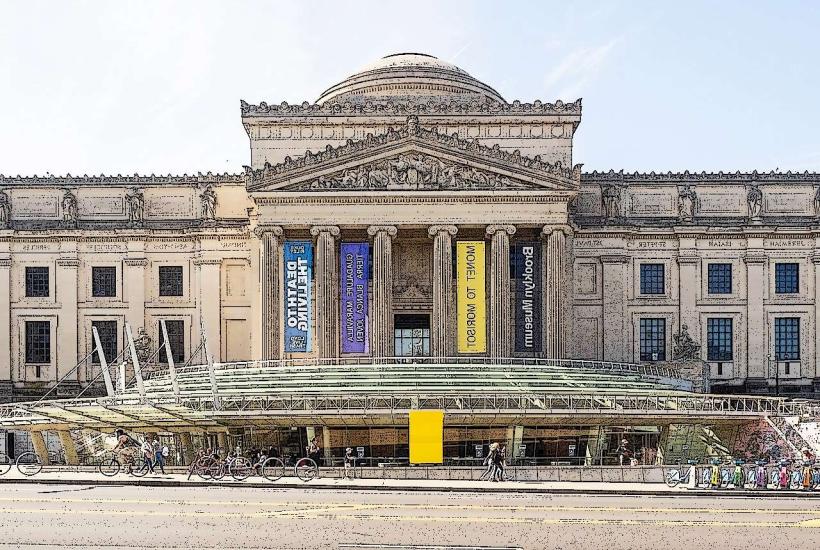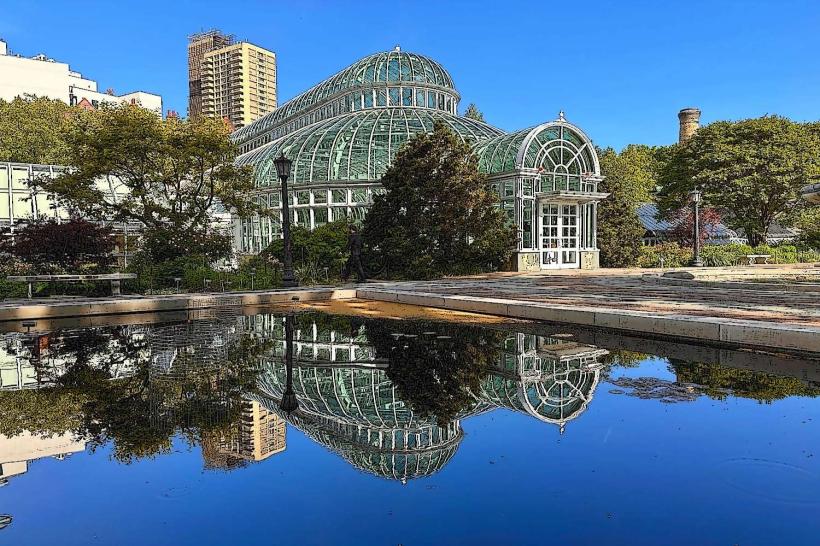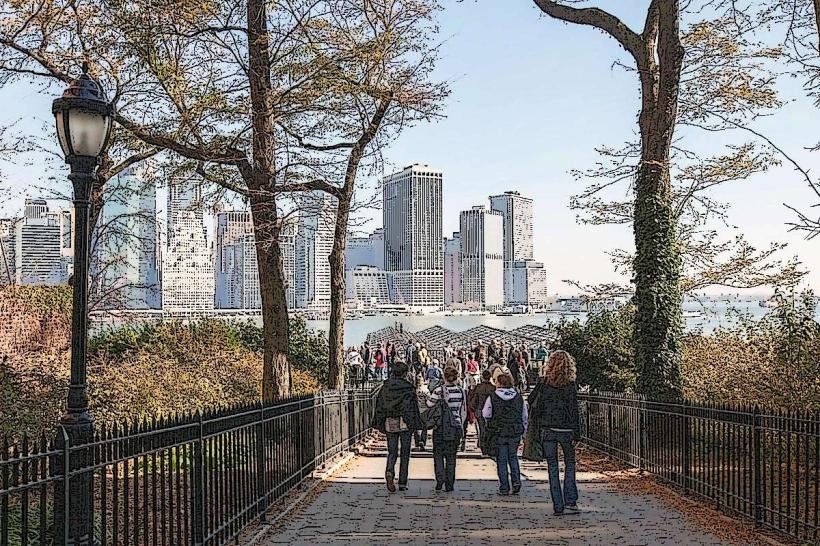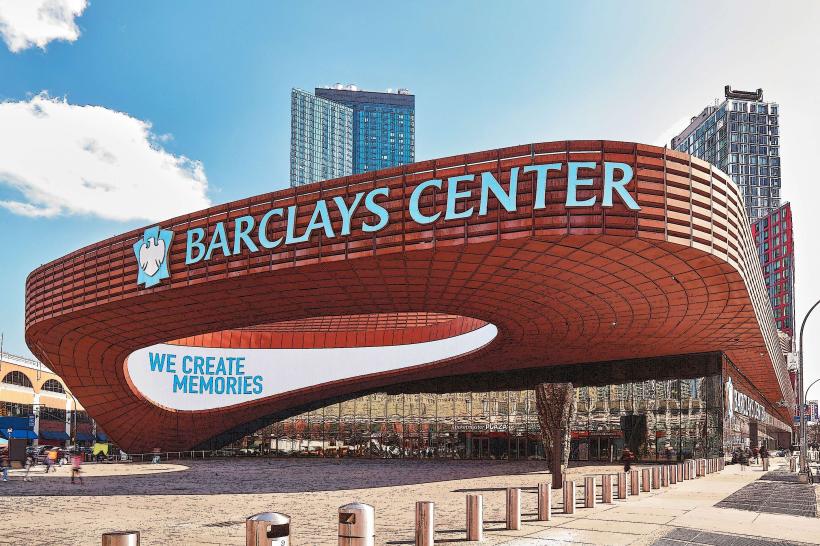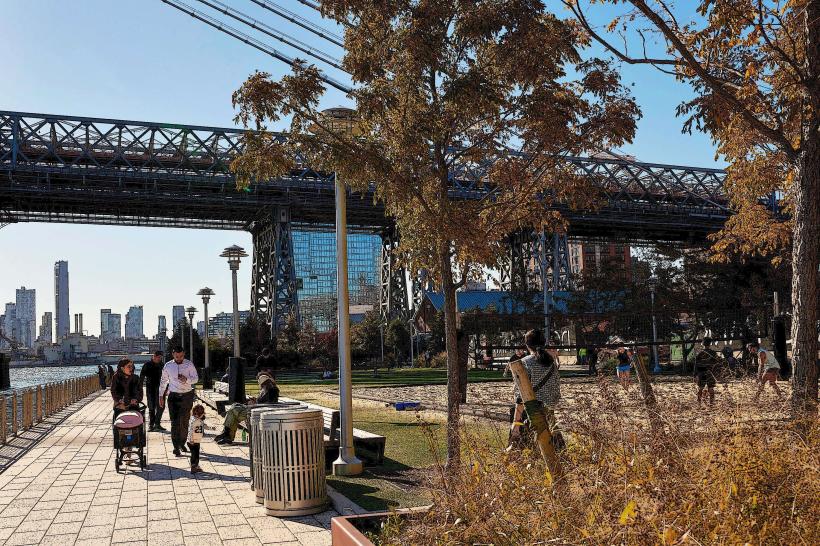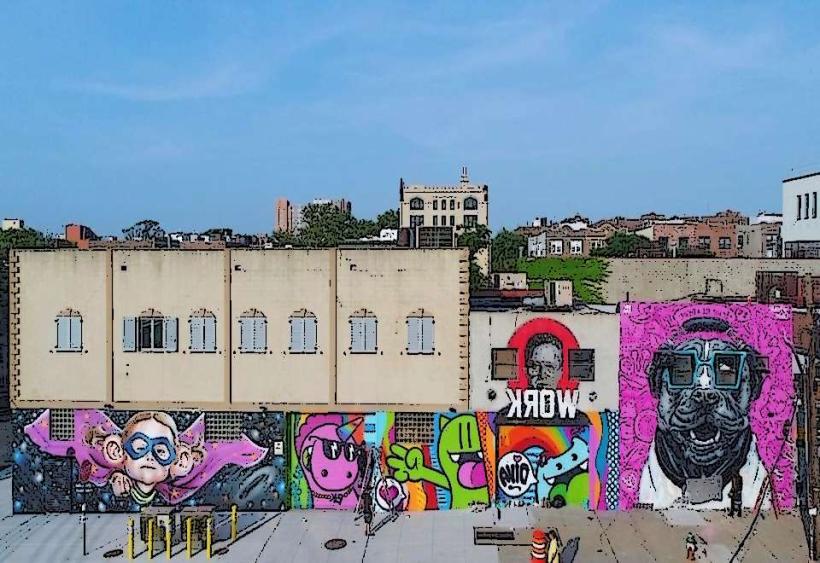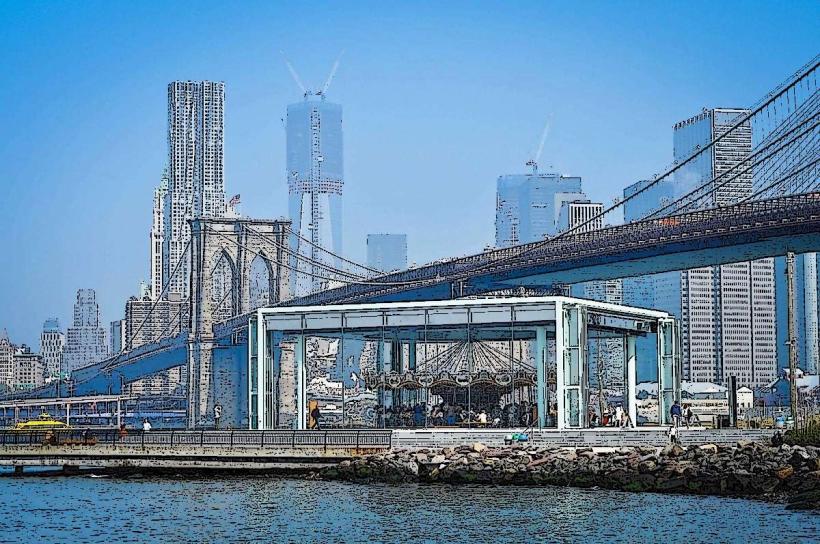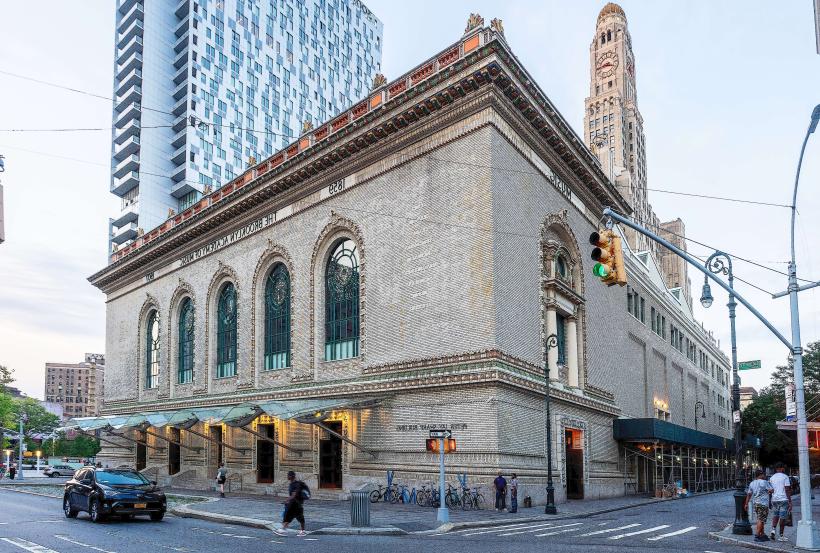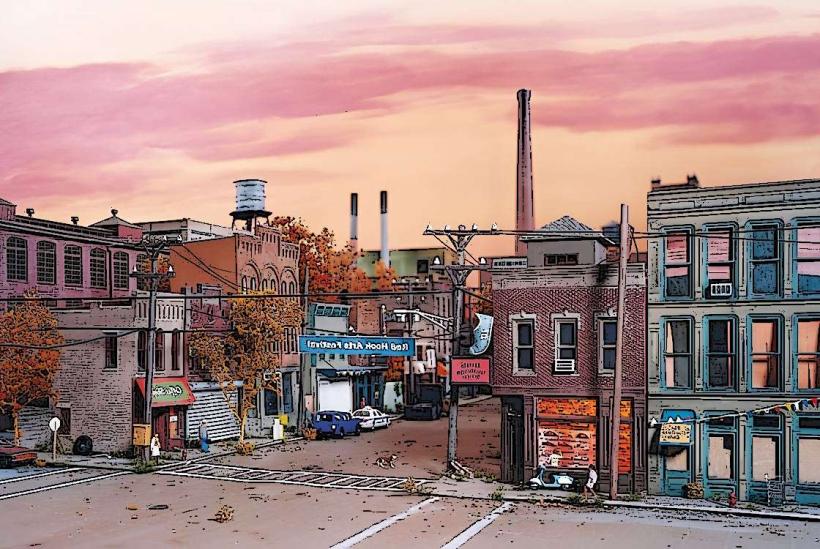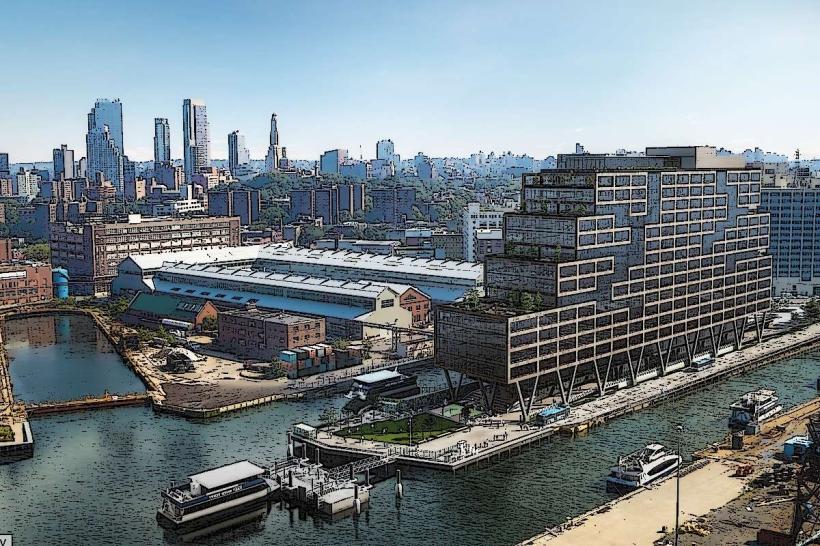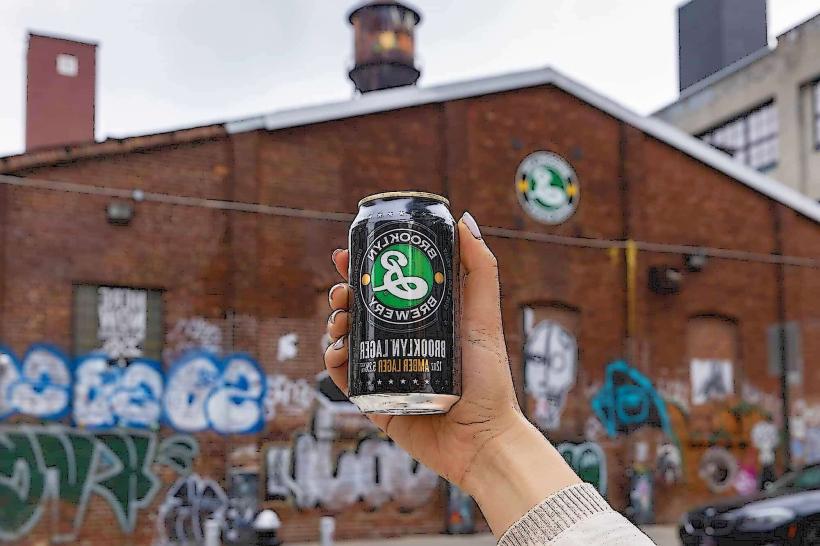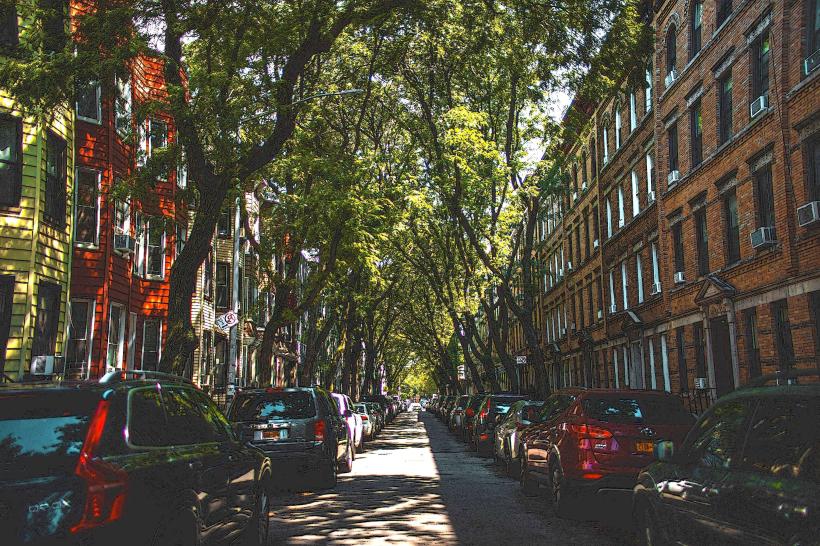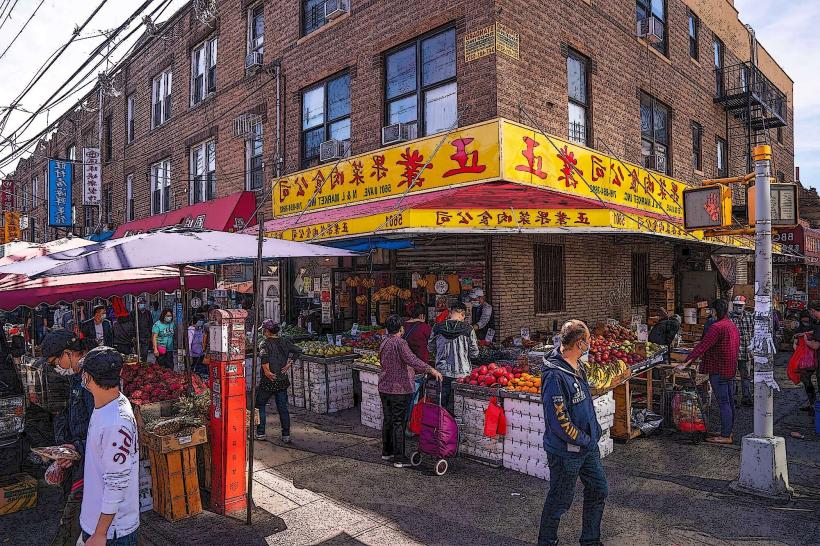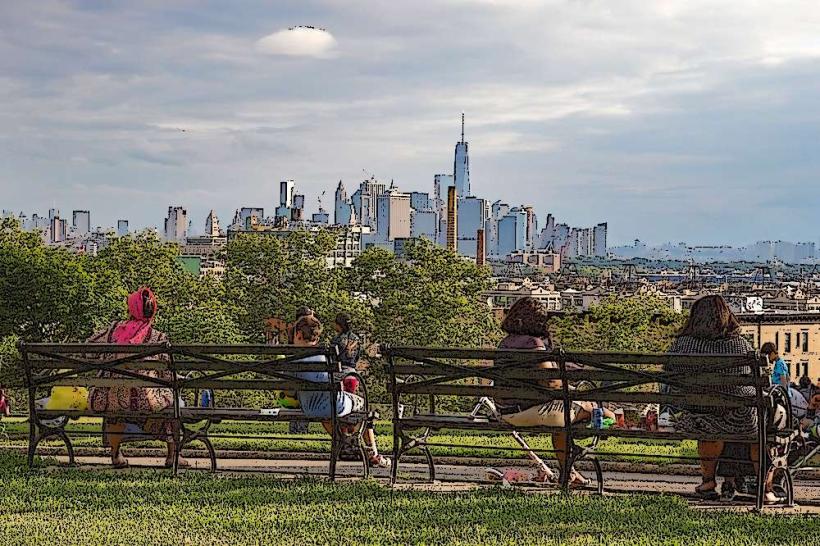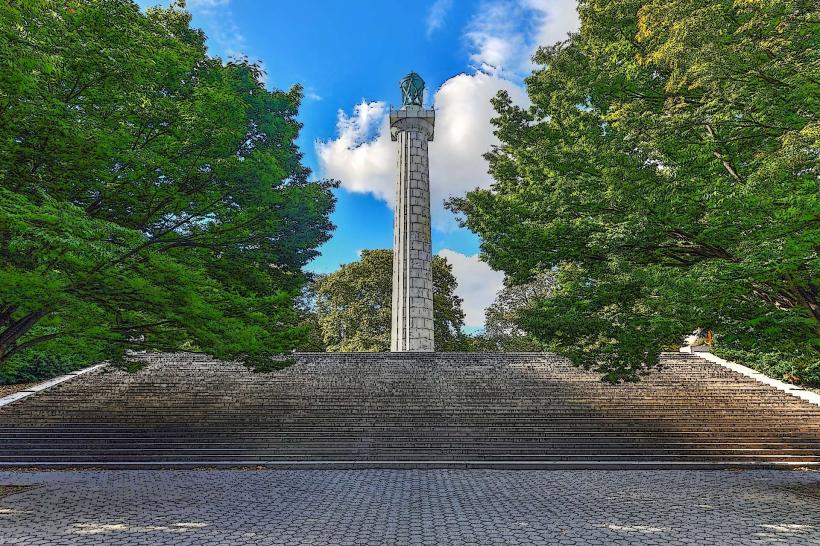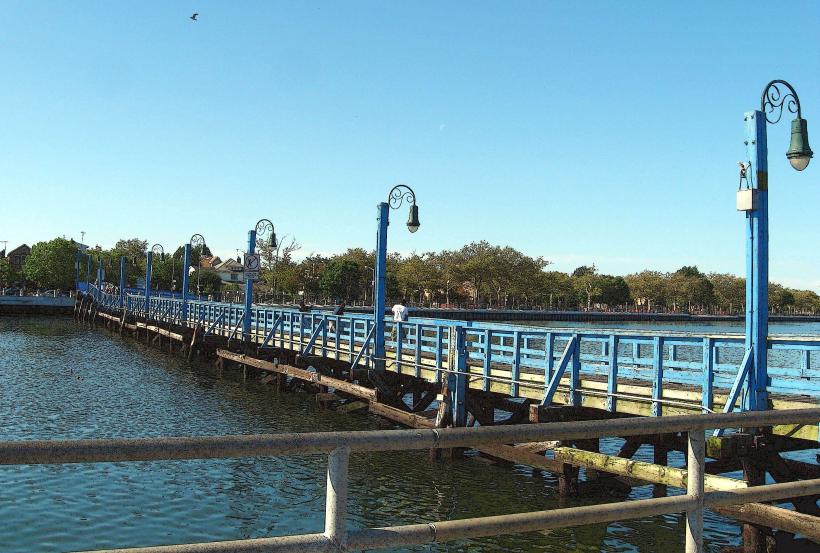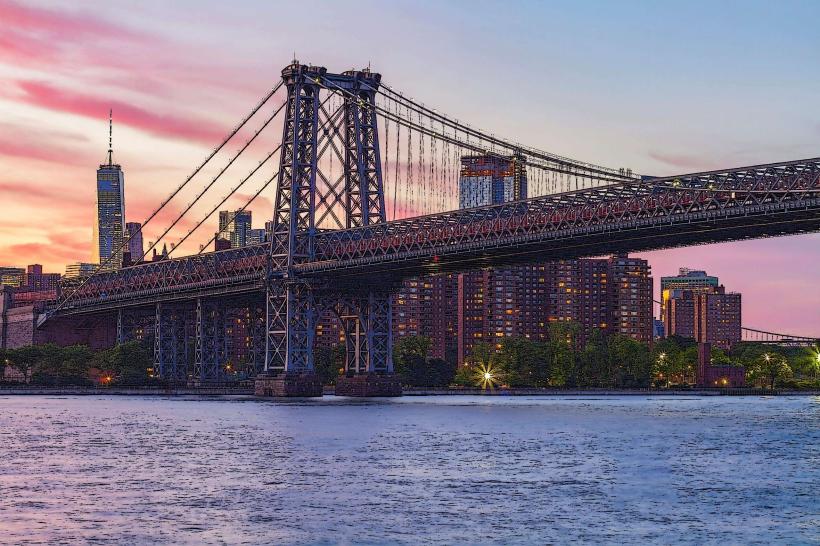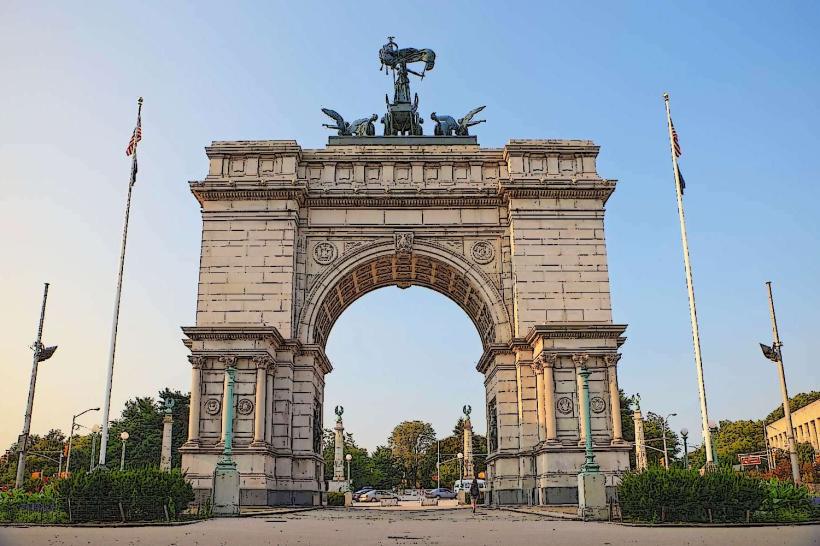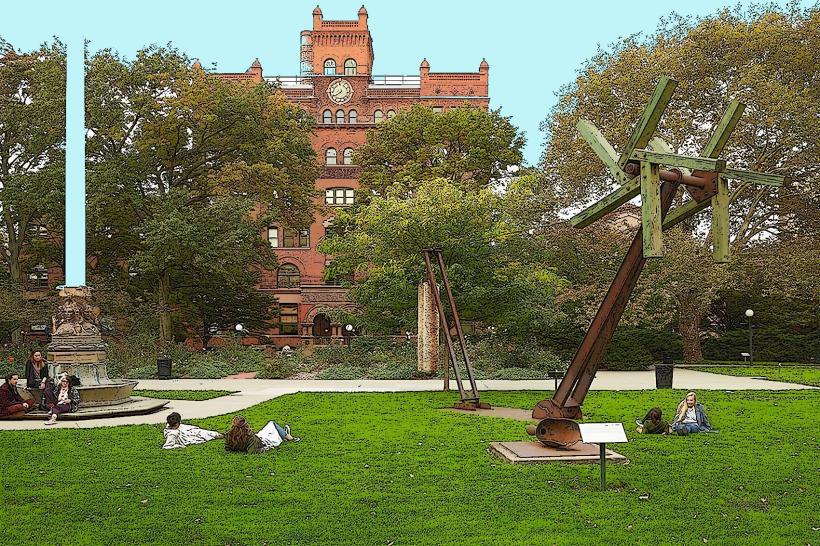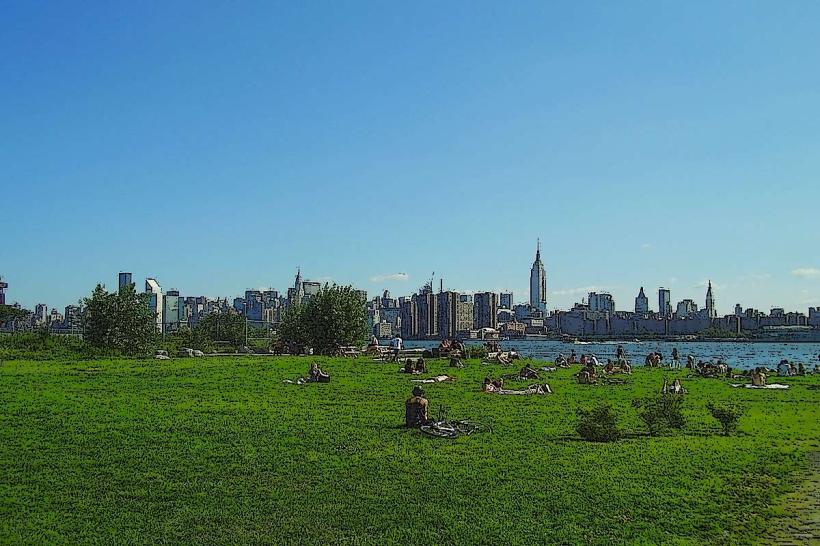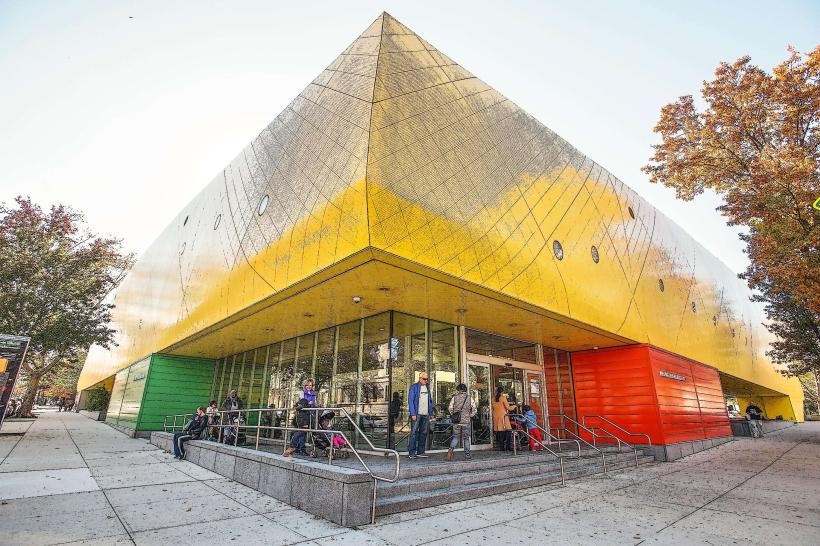Information
Landmark: Prospect ParkCity: Brooklyn
Country: USA New York
Continent: North America
Prospect Park, Brooklyn, USA New York, North America
Prospect Park is a 585-acre public park in the heart of Brooklyn, New York City. Often considered the borough’s equivalent to Manhattan’s Central Park, it was designed by the same landscape architects-Frederick Law Olmsted and Calvert Vaux-in the 1860s. Today, it is a central part of Brooklyn life, combining natural beauty, recreational facilities, and cultural landmarks.
Origins and Design
History:
Designed in 1865 and officially opened in 1867, Prospect Park was envisioned as a rural escape from the growing urban sprawl of Brooklyn.
Unlike Central Park, which is more structured, Prospect Park was designed to feel more natural and wild, with rolling meadows, wooded hills, and meandering water features.
Design Highlights:
Olmsted and Vaux created a landscape that mimics natural terrain, with intentional use of curves, woodlands, and open spaces.
Much of the park’s water system, including the artificial lake and stream network, was engineered to feel entirely natural.
Main Features
The Long Meadow:
One of the longest uninterrupted stretches of meadow in any U.S. urban park.
A popular area for picnicking, sunbathing, sports, and community events.
Prospect Park Lake:
A 60-acre man-made lake in the park’s southern end.
Home to kayaking, fishing, and birdwatching, with dozens of species of birds and other wildlife.
The Ravine and Brooklyn’s only forest:
A deeply wooded area with winding paths, waterfalls, and rustic bridges.
Known as the "last forest in Brooklyn," it offers a tranquil escape and supports diverse plant and animal life.
The Nethermead:
A large open field located in the central area of the park, used for concerts, sports, and festivals.
The Vale (formerly Vale of Cashmere):
A peaceful and slightly hidden area in the northeast section of the park, currently being restored as a quiet nature sanctuary.
Cultural and Recreational Attractions
Prospect Park Zoo:
A small, family-friendly zoo with over 100 animal species, focused on education and conservation.
LeFrak Center at Lakeside:
A modern recreational complex offering ice skating in winter and roller skating, biking, and water play in summer.
Boathouse and Audubon Center:
An elegant early 20th-century building that now serves as a nature education center.
Hosts birdwatching walks, environmental programs, and children’s activities.
Bandshell (Celebrate Brooklyn!):
The main stage for the Celebrate Brooklyn! Festival, a summer-long series of free and ticketed outdoor performances featuring music, dance, and film.
Carousels and Playgrounds:
The Prospect Park Carousel, dating back to 1912, is a beloved attraction.
Over a dozen playgrounds serve different age groups, including modern and inclusive play areas.
Sports Facilities:
Baseball fields, soccer pitches, basketball courts, and tennis centers.
The Prospect Park Tennis Center is a year-round facility for lessons and recreational play.
Community and Events
Greenmarket at Grand Army Plaza:
A weekly farmers’ market featuring local produce, meats, cheeses, and artisanal goods.
Parades and Festivals:
The park hosts major cultural events including Caribbean Carnival, outdoor movie nights, food festivals, and environmental fairs.
Running and Biking:
A 3.35-mile loop runs the perimeter of the park, popular with runners, cyclists, and rollerbladers.
Designated lanes make it safe and well-organized.
Ecology and Restoration
Decades of wear led to significant restoration efforts, especially beginning in the 1980s and continuing today.
The Prospect Park Alliance, founded in 1987, oversees much of the park’s maintenance, environmental restoration, and programming.
Restoration projects have included woodland rehabilitation, lake cleanup, and the reintroduction of native plant species.
Surrounding Area and Accessibility
Bordered by historic and vibrant neighborhoods including Park Slope, Prospect Heights, Crown Heights, and Flatbush.
Easily accessible by multiple subway lines (2, 3, B, Q, F, G).
Entrances include Grand Army Plaza, the Parkside Avenue entrance, and the Bartel-Pritchard Square entrance.
Summary
Prospect Park is a masterpiece of landscape architecture and a vital urban green space that reflects the diversity and energy of Brooklyn. It serves as a refuge for nature, a gathering place for community, and a venue for culture, sports, and recreation. Its blend of natural beauty, thoughtful design, and active community use makes it one of New York City’s greatest public parks.

